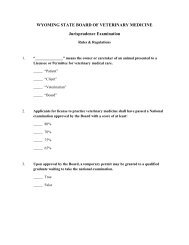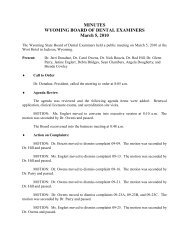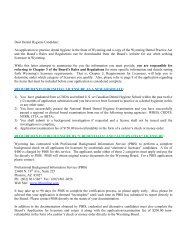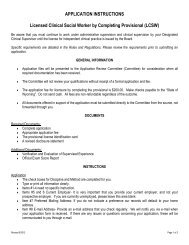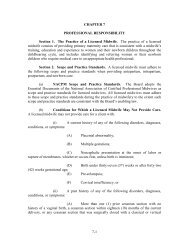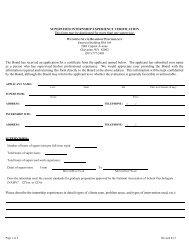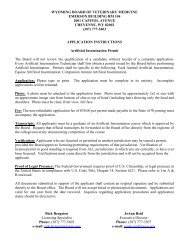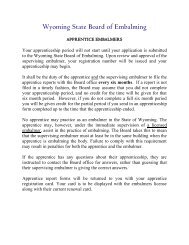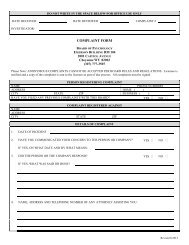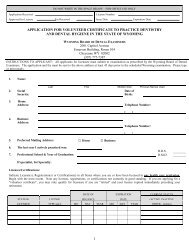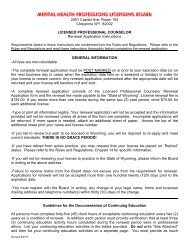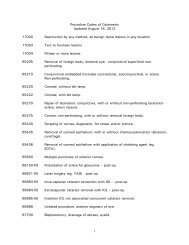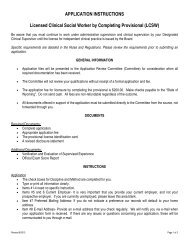LICENSURE REQUIREMENTS FOR PROFESSIONAL COUNSELOR
LICENSURE REQUIREMENTS FOR PROFESSIONAL COUNSELOR
LICENSURE REQUIREMENTS FOR PROFESSIONAL COUNSELOR
Create successful ePaper yourself
Turn your PDF publications into a flip-book with our unique Google optimized e-Paper software.
• Career, avocational, educational, occupational and labor market information<br />
resources, visual and print media, computer-based career information systems,<br />
and other electronic career information systems;<br />
• Career development program planning, organization, implementation,<br />
administration, and evaluation;<br />
• Interrelationships among and between work, family, and other life roles and factors<br />
including the role of diversity and gender in career development;<br />
• Career and educational planning, placement, follow-up, and evaluation;<br />
• Assessment instruments and techniques that are relevant to career planning and<br />
decision making;<br />
• Technology-based career development applications and strategies, including<br />
computer-assisted career guidance and information systems and appropriate<br />
world-wide web sites;<br />
• Career counseling processes, techniques, and resources, including those<br />
applicable to specific populations; and<br />
• Ethical and legal considerations.<br />
Assessment- studies that provide an understanding of individual and group approaches to<br />
assessment and evaluation, including all of the following:<br />
• Historical perspectives concerning the nature and meaning of assessment;<br />
• Basic concepts of standardized and non-standardized testing and other<br />
assessment techniques including norm-referenced and criterion-referenced<br />
assessment, environmental assessment, performance assessment, individual and<br />
group test and inventory methods, behavioral observations, and computermanaged<br />
and computer-assisted methods;<br />
• Statistical concepts, including scales of measurement, measures of central<br />
tendency, indices of variability, shapes and types of distributions, and correlations;<br />
• Reliability (i.e., theory of measurement error, models of reliability, and the use of<br />
reliability information);<br />
• Validity (i.e., evidence of validity, types of validity, and the relationship between<br />
reliability and validity;<br />
• Age, gender, sexual orientation, ethnicity, language, disability, culture, spirituality,<br />
and other factors related to the assessment and evaluation of individuals, groups,<br />
and specific populations;<br />
• Strategies for selecting, administering, and interpreting assessment and evaluation<br />
instruments and techniques in counseling;<br />
• An understanding of general principles and methods of case conceptualization,<br />
assessment, and/or diagnoses of mental and emotional status; and<br />
• Ethical and legal considerations.<br />
Research and Program Evaluation- studies that provide an understanding of research<br />
methods, statistical analysis, needs assessment, and program evaluation, including all of<br />
the following:<br />
• The importance of research and opportunities and difficulties in conducting<br />
research in the counseling profession,



